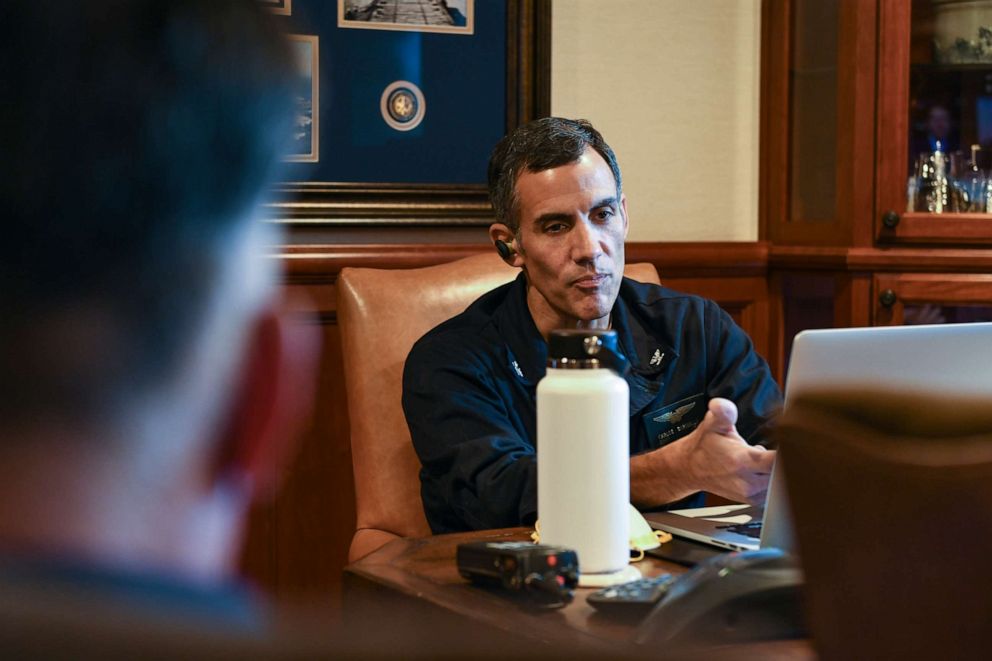More than 60% of the 400 sailors tested on carrier had COVID-19 antibodies
The joint study by the U.S. Navy and the CDC is to be released on Tuesday.
An antibody study of 400 sailors aboard the aircraft carrier USS Theodore Roosevelt found that more than 60% of those who were tested had COVID-19 antibodies, according to two U.S. officials.
The highly anticipated joint study by the U.S. Navy and the Centers for Disease Control and Prevention will provide researchers with valuable data about how the novel coronavirus affects young adults since they make up the majority of the nearly 5,000 sailors aboard the carrier. The study is to be released on Tuesday.
Nearly 1,200 sailors tested positive for the virus with the overwhelming majority being asymptomatic or presenting only mild symptoms. Fewer than 10 sailors required hospitalization, one of whom later died.

In April, the Navy said it was going to test 1,000 volunteers from among the ship's crew for antibodies to the coronavirus to see how the virus had spread among them. In the end only 400 sailors were tested and more than 60% of them tested positive for COVID-19 antibodies, according to the officials. Additionally, a good number of those who tested positive for the antibodies were asymptomatic or only had mild symptoms.
The joint Navy and CDC study will be the first major study of how a young adult population reacts to exposure to the virus. The results of the study were first reported by Reuters.
The carrier left Guam last week to continue a deployment in the western Pacific Ocean after it was interrupted by a 10-week stay while the crew was quarantined or isolated after almost a quarter of the ship's crew was infected with the coronavirus. While the majority of the ship's crew was aboard the Roosevelt when it left, more than 350 sailors remained behind either to continue recuperating from the disease or to provide them support.
In the wake of the coronavirus outbreak aboard the carrier and the guided missile destroyer USS Kidd, the Navy has instituted new health and safety procedures aboard ships at sea or ships preparing to head out to sea to prevent future outbreaks.
The sailors aboard the Roosevelt will all wear masks and carry out social distancing for the rest of their deployment in the Pacific -- a practice that all Navy ships at sea are also employing.
Before a ship can head out to sea, a ship's crew must be tested and quarantined for 14 days before boarding the ship.
To minimize the exposure to the virus, for the foreseeable future ports of call will be limited to a select number of Navy bases around the world that can serve as "safe havens" because access can be limited. The Navy bases in Guam and Okinawa will serve that purpose in the Pacific, while bases in the Mediterranean and the Middle East remain to be selected.
What to know about the coronavirus:
- How it started and how to protect yourself: Coronavirus explained
- What to do if you have symptoms: Coronavirus symptoms
- Tracking the spread in the U.S. and worldwide: Coronavirus map
Tune into ABC at 1 p.m. ET and ABC News Live at 4 p.m. ET every weekday for special coverage of the novel coronavirus with the full ABC News team, including the latest news, context and analysis.




